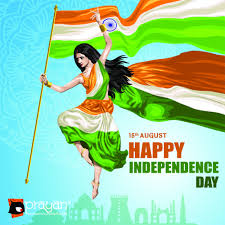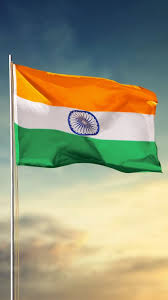15th August: India’s Independence Day: Celebrating 15th August:
15th August: India’s Independence Day, celebrated annually on 15th August, is a day of immense significance, marking the end of British colonial rule in India and the birth of an independent nation in 1947. This day is not only a commemoration of freedom but also a reflection on the sacrifices made by countless freedom fighters, the struggles endured by the masses, and the vision of a future that drove an entire nation to rise against oppression. The celebration of Independence Day is infused with patriotism, pride, and the collective memory of a long-fought battle for self-determination.
Table of Contents
Historical 15th August: Context and the Road to Independence

15th August: The story of India’s independence is deeply rooted in centuries of resistance against foreign rule. The British East India Company established its presence in India in the 17th century, gradually expanding
its control over large parts of the subcontinent. By the mid-19th century, after the defeat of various regional powers and the suppression of the 1857 Rebellion
(often referred to as the First War of Independence), India officially came under direct British rule.
For nearly 200 years, India was under the yoke of British imperialism
, during which the country’s resources were exploited, and its people subjected to economic hardship, social discrimination, and political subjugation. The impact of British rule was profound, leading to widespread poverty, famine, and cultural disintegration.

The late 19th and early 20th centuries saw the rise of the Indian National Congress (INC)
and the broader Indian independence movement. Leaders like Bal Gangadhar Tilak, Lala Lajpat Rai, Bipin Chandra Pal, and later,
Mahatma Gandhi, Jawaharlal Nehru, and Sardar Vallabhbhai Patel, played pivotal roles in mobilizing the masses against British rule.
Mahatma Gandhi’s philosophy of non-violence and civil disobedience became the cornerstone of the freedom struggle. Campaigns such as the Non-Cooperation Movement (1920),
he Civil Disobedience Movement (1930), and the Quit India Movement (1942)
galvanized millions of Indians to demand freedom from colonial rule. Despite facing brutal repression, the movement for independence continued to gain momentum.
The Partition of India and the Birth of Two Nations

As the demand for independence grew stronger, so did the tensions between different religious communities, particularly between Hindus and Muslims. The British, who had long practiced a policy of divide and rule, found it increasingly difficult to maintain
control over a country that was becoming increasingly polarized.
The Muslim League,15th August: under the leadership of Muhammad Ali Jinnah,
began advocating for a separate Muslim state, which would eventually lead to the creation of Pakistan. The INC, led by leaders like Gandhi and Nehru, initially resisted
the idea of partition, but the escalating communal violence and political deadlock made the partition inevitable.
The Significance of 15th August
The first Independence Day on 15th August: 1947 was a moment of unparalleled joy and triumph for the Indian people. At the stroke of midnight, Jawaharlal Nehru, who would become India’s first Prime Minister, delivered his famous “Tryst with Destiny” speech, declaring India’s arrival as a sovereign nation. Nehru’s speech captured the aspirations of a nation that had finally broken free from colonial shackles and was ready to chart its own course.
15th August: Independence Day is also a day of reflection,15th August: as the country pays tribute to the freedom fighters and martyrs who sacrificed their lives for the nation’s independence. Their contributions are remembered through various events, cultural programs, and documentaries that highlight the history of the freedom struggle.
Post-Independence Challenges and Nation-Building
While 15th August: 1947 marked the end of colonial rule, it also signaled the beginning of a new set of challenges for India. The partition had left the country divided, with millions displaced and communities torn apart by communal violence. The task of nation-building was immense, with the need to integrate hundreds of princely states, establish a democratic system of governance, and lay the foundation for economic development.
15th August: commitment to democracy, despite its immense diversity and socio-economic challenges, remains one of its most significant achievements. The country has successfully held regular elections, and the peaceful transfer of power has become a hallmark of Indian democracy.
Independence Day in Contemporary India
Today, Independence Day is a reminder of India’s journey over the past seven decades. The country has made remarkable strides in various fields, including technology, space exploration, healthcare, and education. India is now the world’s largest democracy and one of the fastest-growing major economies.
Independence Day serves as a moment to reaffirm the values enshrined in the Constitution and to commit to the ongoing task of nation-building. It is an occasion for Indians to come together, irrespective of their differences, and celebrate the idea of India—a diverse, pluralistic, and inclusive nation.
Cultural Celebrations and Symbolism
Independence Day is not just a political event; it is also a cultural celebration. The day is marked by various cultural programs, patriotic songs, and performances that highlight India’s rich heritage and diversity. Schools and colleges across the country organize events where students participate in flag-hoisting ceremonies, sing patriotic songs, and perform skits depicting the freedom struggle.
The national flag, the tricolor of saffron, white, and green with the Ashoka Chakra at its center, is a powerful symbol of India’s independence. It represents the values of courage, peace, and prosperity, and it is hoisted with pride across the country on Independence Day.
indianfastearning.comRight Now india independence day 15 august
Conclusion
15th August: is more than just a date on the calendar; it is a symbol of India’s resilience, strength, and unity. It is a day to honor the sacrifices of those who fought for freedom, to celebrate the achievements of the nation, and to recommit to the ideals that define India. As India continues to grow and evolve, Independence Day remains a beacon of hope and inspiration, reminding all Indians of their shared history and common destiny.
www.youtube.comhttp://15th August:







